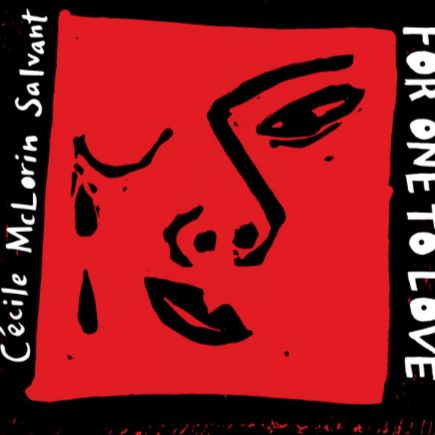Cécile McLorin Salvant, la voix érudite du jazz contemporain
Fille d’un père haïtien et d’une mère française, Cécile McLorin Salvant incarne aujourd’hui l’une des figures les plus originales du jazz vocal. Née à Miami, elle se forme très jeune à la musique: le piano dès cinq ans, le chant choral à huit ans avec la Miami Choral Society. Sa curiosité et son éclectisme la conduisent en France, à Aix-en-Provence, où elle étudie la musique classique et le chant baroque. Cette double culture, nourrie d’influences européennes et afro-américaines, façonne une approche singulière du jazz, à la fois érudite, narrative et profondément ancrée dans la mémoire collective.
Dès ses débuts, Cécile McLorin Salvant se distingue par son goût pour les répertoires oubliés et les récits effacés de l’histoire. Dans ses concerts comme dans ses enregistrements, elle exhume des chansons rares — blues, cabaret, chanson française, folk — et les revisite avec une intelligence dramatique unique. Héritière des grandes voix du jazz — Bessie Smith, Billie Holiday, Sarah Vaughan —, elle en prolonge la lignée tout en la réinventant. Son chant conjugue précision classique et liberté jazzistique, son timbre s’étire entre fragilité et puissance, sa diction cristalline donne à chaque mot un relief saisissant.
En 2009, elle enregistre son premier album européen, Cécile, qui révèle déjà son sens aigu du récit musical. Elle collabore ensuite avec Jacky Terrasson sur Gouache (2012), avant de s’imposer sur la scène internationale avec Woman Child (2013), accompagné par Aaron Diehl, Rodney Whitaker, James Chirillo et In Riley. Ce disque, alliant compositions originales et standards revisités, annonce une artiste d’une maturité étonnante.
Avec For One to Love (2015), elle remporte le Grammy Award du meilleur album vocal de jazz en 2016, confirmant une reconnaissance critique unanime. Dreams and Daggers (2017), enregistré en public au Village Vanguard et au DiMenna Center de New York, consacre son art du contraste entre intimité et virtuosité. Plus récemment, Ghost Song (2022) prolonge cette démarche introspective et poétique, mêlant jazz, musique ancienne et textes originaux dans un univers à la fois raffiné et audacieux.
Cécile McLorin Salvant, la voz erudita del jazz contemporáneo
Hija de un padre haitiano y una madre francesa, Cécile McLorin Salvant encarna hoy una de las figuras más originales del jazz vocal. Nacida en Miami, se formó desde muy pequeña en la música: piano a los cinco años y canto coral a los ocho con la Miami Choral Society. Su curiosidad y eclecticismo la llevaron a Francia, a Aix-en-Provence, donde estudió música clásica y canto barroco. Esta doble herencia, alimentada por influencias europeas y afroamericanas, dio forma a un enfoque del jazz singular, a la vez erudito, narrativo y profundamente arraigado en la memoria colectiva.
Desde sus primeros pasos, Cécile McLorin Salvant se distingue por su gusto por los repertorios olvidados y las historias silenciadas. En sus conciertos y grabaciones, rescata canciones poco conocidas —blues, cabaret, chanson francesa, folk— y las reinventa con una inteligencia dramática única. Heredera de las grandes voces del jazz —Bessie Smith, Billie Holiday, Sarah Vaughan—, prolonga su legado al tiempo que lo transforma. Su canto combina precisión clásica y libertad jazzística, su timbre oscila entre la fragilidad y la fuerza, y su dicción cristalina otorga a cada palabra una intensidad conmovedora.
En 2009 grabó su primer álbum europeo, Cécile, que ya revelaba su agudo sentido del relato musical. Posteriormente colaboró con Jacky Terrasson en Gouache (2012), antes de consolidarse en la escena internacional con Woman Child (2013), junto a Aaron Diehl, Rodney Whitaker, James Chirillo e In Riley. Este disco, que combina composiciones originales y estándares revisitados, anunciaba a una artista de sorprendente madurez.
Con For One to Love (2015), ganó el Grammy al mejor álbum vocal de jazz en 2016, confirmando unánimemente el reconocimiento de la crítica. Dreams and Daggers (2017), grabado en vivo en el Village Vanguard y el DiMenna Center de Nueva York, consagró su arte del contraste entre intimidad y virtuosismo. Más recientemente, Ghost Song (2022) prolonga su exploración introspectiva y poética, mezclando jazz, música antigua y textos originales en un universo tan refinado como audaz.
Cécile McLorin Salvant, la voce colta del jazz contemporaneo
Figlia di un padre haitiano e di una madre francese, Cécile McLorin Salvant rappresenta oggi una delle figure più originali del jazz vocale contemporaneo. Nata a Miami, si è formata musicalmente fin da bambina: pianoforte a cinque anni e canto corale a otto con la Miami Choral Society. La sua curiosità e il suo eclettismo l’hanno portata in Francia, ad Aix-en-Provence, dove ha studiato musica classica e canto barocco. Questa doppia eredità, nutrita da influenze europee e afroamericane, ha dato vita a un approccio al jazz colto, narrativo e profondamente radicato nella memoria collettiva.
Sin dagli esordi, Cécile McLorin Salvant si distingue per il gusto verso i repertori dimenticati e le storie cancellate. Nei suoi concerti e nelle sue incisioni riscopre brani rari —blues, cabaret, chanson francese, folk— e li reinterpreta con un’intelligenza drammatica unica. Erede delle grandi voci del jazz —Bessie Smith, Billie Holiday, Sarah Vaughan—, ne prolunga la tradizione reinventandola. Il suo canto unisce la precisione classica alla libertà jazzistica, il timbro varia tra fragilità e potenza, e la sua dizione cristallina conferisce a ogni parola un rilievo straordinario.
Nel 2009 incide il suo primo album europeo, Cécile, che già rivela il suo profondo senso del racconto musicale. Collabora poi con Jacky Terrasson in Gouache (2012) e si impone sulla scena internazionale con Woman Child (2013), accompagnata da Aaron Diehl, Rodney Whitaker, James Chirillo e In Riley. Questo disco, che unisce composizioni originali e standard rivisitati, rivela un’artista di sorprendente maturità.
Con For One to Love (2015), vince il Grammy Award per il miglior album vocale jazz nel 2016, ottenendo un consenso critico unanime. Dreams and Daggers (2017), registrato dal vivo al Village Vanguard e al DiMenna Center di New York, consacra la sua arte del contrasto tra intimità e virtuosismo. Più recentemente, Ghost Song (2022) prosegue questa ricerca introspettiva e poetica, fondendo jazz, musica antica e testi originali in un universo tanto raffinato quanto audace.
Cécile McLorin Salvant, the erudite voice of contemporary jazz
Daughter of a Haitian father and a French mother, Cécile McLorin Salvant stands today as one of the most original voices in contemporary jazz. Born in Miami, she began her musical training early—piano at five, and choral singing at eight with the Miami Choral Society. Her curiosity and eclecticism led her to France, to Aix-en-Provence, where she studied classical music and baroque singing. This dual heritage, shaped by both European and African American influences, gave rise to a distinctive approach to jazz—intellectual, narrative, and deeply rooted in cultural memory.
From her earliest performances, Cécile McLorin Salvant has stood out for her fascination with forgotten repertoires and overlooked stories. In both her concerts and recordings, she unearths rare songs—blues, cabaret, French chanson, folk—and reinterprets them with dramatic intelligence and emotional depth. Heir to the great voices of jazz—Bessie Smith, Billie Holiday, Sarah Vaughan—she continues their legacy while reinventing it. Her singing combines classical precision with jazz freedom; her tone moves between fragility and strength; her crystal-clear diction gives every word remarkable presence.
In 2009, she recorded her first European album, Cécile, already showcasing her strong sense of musical storytelling. She later collaborated with Jacky Terrasson on Gouache (2012) before gaining international recognition with Woman Child (2013), alongside Aaron Diehl, Rodney Whitaker, James Chirillo, and In Riley. Blending original compositions with reimagined standards, the album revealed an artist of astonishing maturity.
With For One to Love (2015), she won the Grammy Award for Best Jazz Vocal Album in 2016, earning widespread critical acclaim. Dreams and Daggers (2017), recorded live at New York’s Village Vanguard and DiMenna Center, affirmed her mastery of contrast between intimacy and virtuosity. More recently, Ghost Song (2022) continues this introspective and poetic journey, merging jazz, early music, and original texts into a sound world that is both refined and daring.



